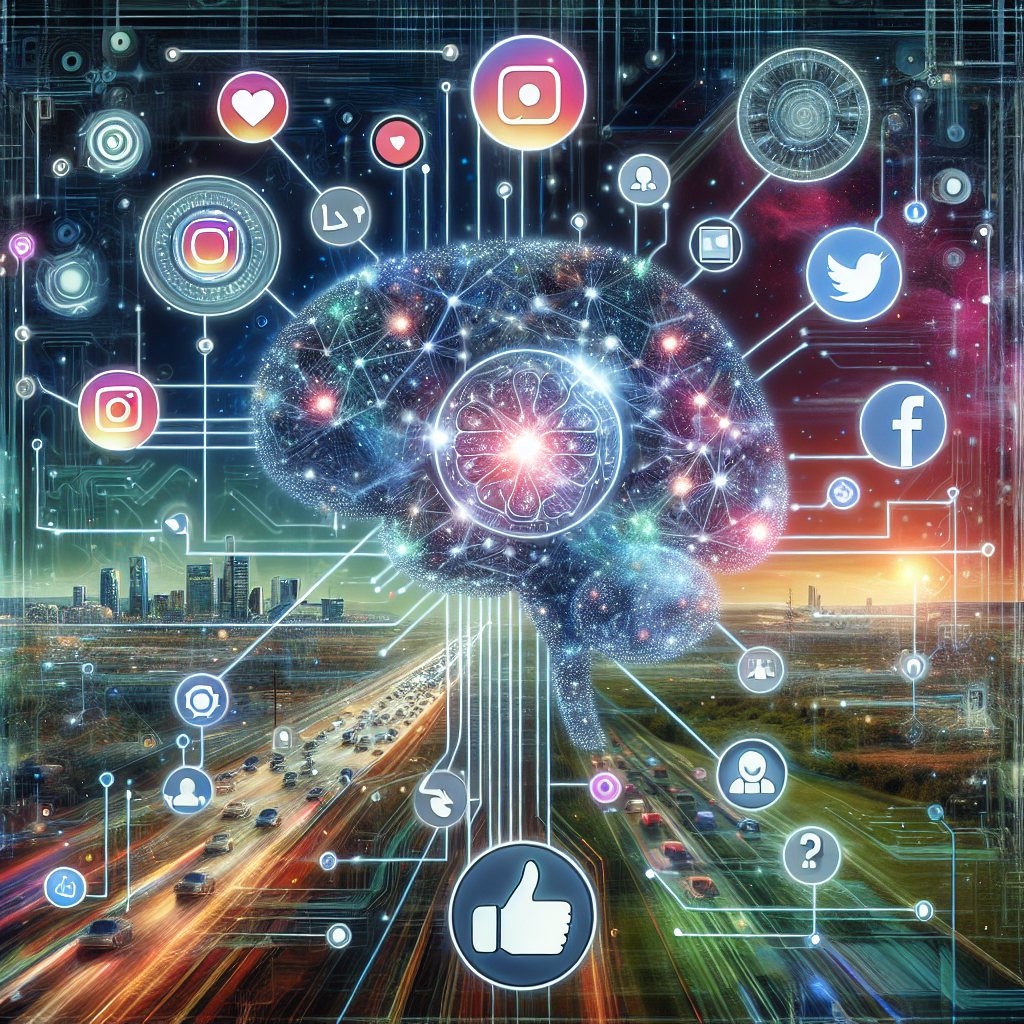Social media has become an integral part of our daily lives, with millions of users around the world engaging with various platforms to connect with friends, family, and colleagues, as well as consume news and entertainment. As the popularity of social media continues to grow, so too does the need for platforms to enhance the user experience and provide more personalized and engaging content. This is where Artificial Intelligence (AI) comes into play.
AI has the potential to revolutionize the way we interact with social media platforms, by analyzing user behavior and preferences to deliver more relevant content and improve overall user experience. In this article, we will explore the various ways in which AI can be used to enhance social media user experience, as well as address some common questions and concerns surrounding the use of AI in this context.
One of the key ways in which AI can improve social media user experience is through personalized content recommendations. By analyzing a user’s browsing history, likes, and interactions on the platform, AI algorithms can suggest content that is likely to be of interest to the user. This not only helps users discover new and relevant content, but also keeps them engaged and coming back to the platform for more.
Another way in which AI can enhance social media user experience is through chatbots and virtual assistants. These AI-powered tools can help users navigate the platform more easily, answer questions, and provide personalized recommendations. For example, a chatbot could assist users in finding specific content or products, or recommend events and activities based on their interests and location.
AI can also be used to improve the overall user interface of social media platforms, making them more intuitive and user-friendly. By analyzing user interactions and feedback, AI algorithms can identify pain points and areas for improvement, and suggest changes to the interface to enhance usability and engagement.
Additionally, AI can be used to detect and prevent harmful or inappropriate content on social media platforms. By analyzing text, images, and videos, AI algorithms can identify content that violates community guidelines or could be harmful to users, such as hate speech, fake news, or graphic violence. This helps to create a safer and more positive environment for users to interact and share content.
Despite the many benefits of AI in social media user experience, there are also some concerns and challenges that need to be addressed. One common concern is around privacy and data security, as AI algorithms require access to user data in order to make personalized recommendations. Platforms must be transparent about how user data is collected and used, and ensure that it is protected from unauthorized access or misuse.
Another concern is around the potential for AI algorithms to reinforce biases and stereotypes, particularly in content recommendations. For example, if an AI algorithm is trained on a dataset that is biased towards a certain demographic or viewpoint, it may inadvertently perpetuate these biases in its recommendations. Platforms must be mindful of these potential biases and take steps to mitigate them, such as diversifying training data and regularly auditing AI algorithms for fairness and accuracy.
Despite these concerns, the potential of AI in social media user experience is vast, and the benefits far outweigh the risks. By leveraging AI technology, social media platforms can create more personalized and engaging experiences for users, while also improving safety and security. As AI continues to evolve and become more sophisticated, we can expect to see even more innovative applications in the realm of social media user experience.
FAQs:
Q: How does AI personalize content recommendations on social media platforms?
A: AI algorithms analyze a user’s browsing history, likes, and interactions on the platform to suggest content that is likely to be of interest to the user. This helps users discover new and relevant content, and keeps them engaged with the platform.
Q: How can chatbots and virtual assistants enhance social media user experience?
A: Chatbots and virtual assistants can help users navigate the platform, answer questions, and provide personalized recommendations. They can assist users in finding specific content or products, recommend events and activities, and enhance overall user experience.
Q: What are some concerns surrounding the use of AI in social media user experience?
A: Some concerns include privacy and data security, bias and stereotypes in content recommendations, and the potential for AI algorithms to inadvertently perpetuate harmful content. Platforms must be mindful of these concerns and take steps to address them.
Q: How can social media platforms ensure that AI algorithms are fair and accurate?
A: Platforms can diversify training data, regularly audit AI algorithms for biases and inaccuracies, and provide transparency around how user data is collected and used. By taking these steps, platforms can ensure that AI algorithms are fair and accurate in their recommendations.
In conclusion, AI has the potential to revolutionize social media user experience by personalizing content recommendations, enhancing user interface, and improving safety and security. While there are concerns surrounding the use of AI in this context, platforms can mitigate these risks by being transparent, diversifying training data, and regularly auditing AI algorithms. As AI technology continues to evolve, we can expect to see even more innovative applications in social media user experience, making platforms more engaging, user-friendly, and safe for users around the world.

